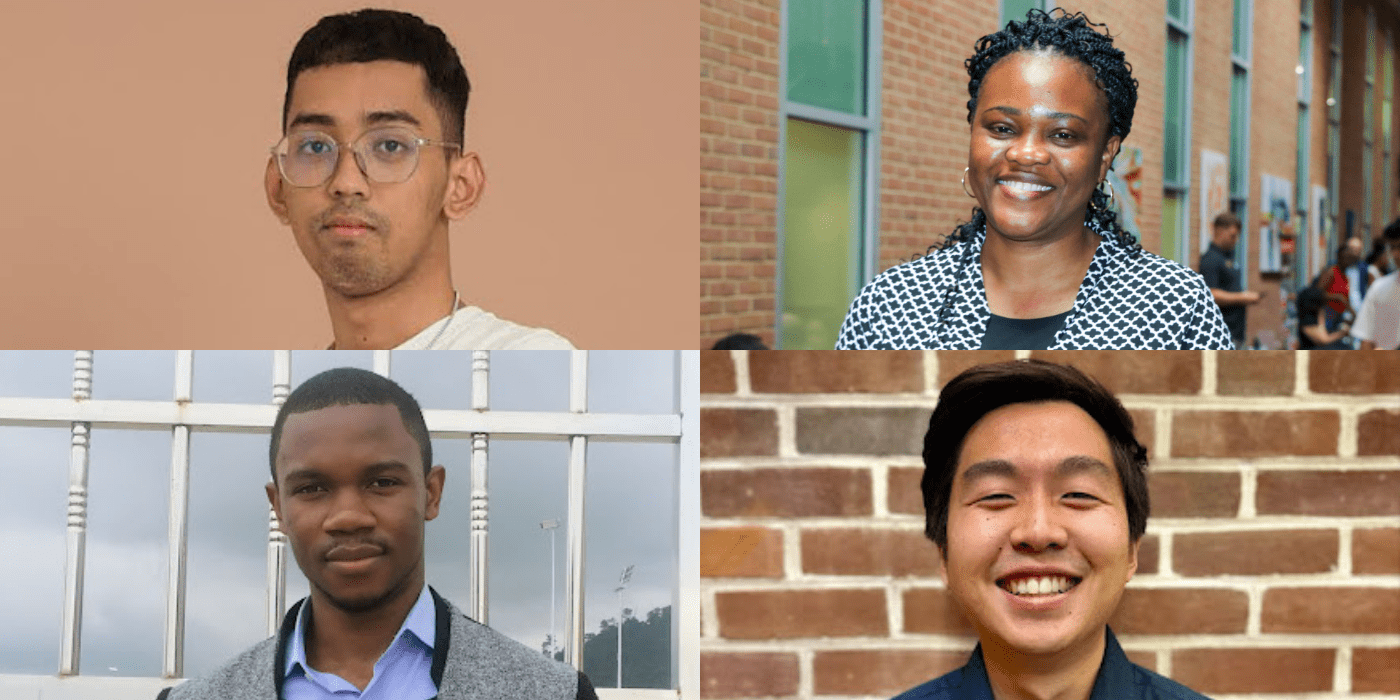
Four graduate students in the UMD School of Public Health were selected for the Global STEWARDS (STEM Training at the Nexus of Energy, WAter Reuse and FooD Systems) Fellowship, a graduate education program designed to train students to effectively work and communicate across disciplines to address global food, energy and water issues.
This year’s SPH awardees are: Gerry Andhikaputra, a student in epidemiology and biostatistics, and Bukola Omena-Okpowe, Asangwing Formukong and Nick An – all students in environmental health sciences.
Being selected as a fellow in the UMD Global STEWARD program is truly an honor for me.
“Being selected as a fellow in the UMD Global STEWARD program is truly an honor for me,” said Andhikaputra. “Growing up in the Asia-Pacific region, I witnessed firsthand how climate change and health disparities intersect to affect vulnerable communities. This experience has driven my passion for addressing these critical challenges through research and collaboration.”
Collaborative research is at the core of the fellowship, which “prepares students to tackle pressing global challenges through interdisciplinary approaches,” said Suhana Chattopadhyay, an assistant research professor and Global STEWARDS program manager. “As a UMD Global STEWARDS Fellow, students are not only advancing their research but are also part of a vibrant, cross-disciplinary community that encourages creative problem-solving, networking and leadership development. Being a fellow represents a commitment to using one's academic skills to drive sustainable, positive change in food, energy and water systems from local to global scales.”
Students were chosen based on their unique perspectives, creativity in research, leadership qualities, strong collaborative potentials and motivation to work beyond traditional academic boundaries, Chattopadhyay said. Throughout the program, the fellows will gain experience in interdisciplinary research skills and will have the chance to travel on short-term study abroad trips to learn how other nations, such as Nepal and Tanzania, tackle various food, energy and water challenges.
Written by Sumaya Abdel-Motagaly